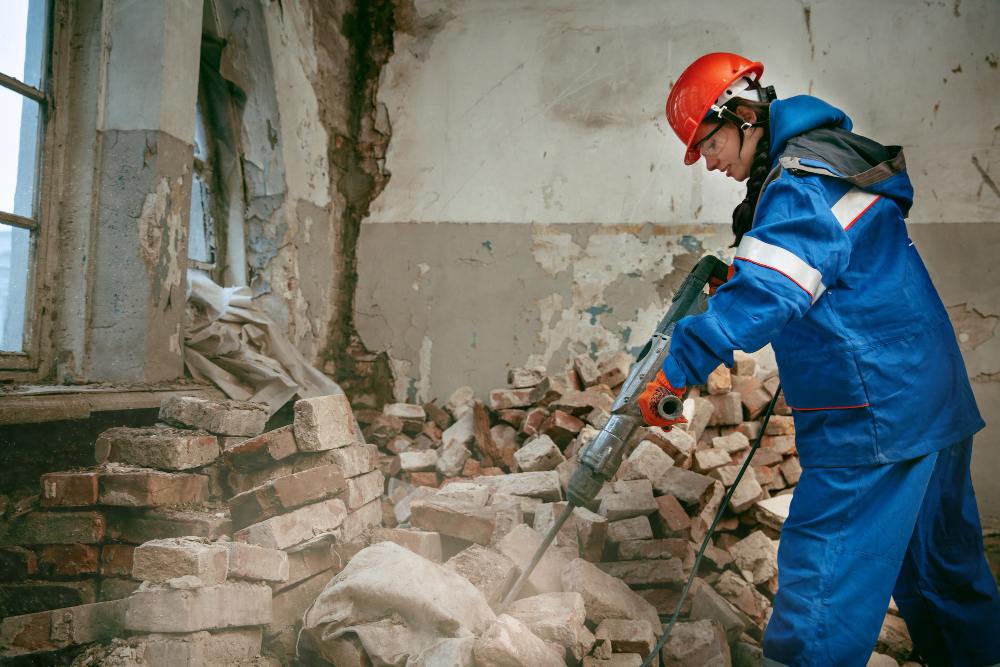For dumpster, container, and large loads please call
For dumpster, container, and large loads please call

You probably have heard of the importance of working carefully and precisely when it comes to construction, and it is indeed quite crucial. However, what many people forget about is that when it comes to preparing for deconstruction, a very similar level of care and dedication is required. Demolition sites can be quite scary due to all the potential hazards. So, it’s important for the crew to know some of the common risks of demolition sites and how, as either a homeowner or a building owner, or responsible for taking care of the demolition, you can decrease the risk associated with these places.
As you can guess, falling from heights is one of the most common risks in both construction and demolition operations. Especially when the crew is working from big ladders or other elevated surfaces, there’s a serious risk of falls and injuries.
Another major concern of demolition sites are the unexpected collapses. They can happen due to reasons such as inadequate planning beforehand or not being able to follow the plan, accidentally removing important structural pieces, or impacts of other heavy machinery.
Lead-based items frequently come out to the surface during demolitions. As you might already know, coming into contact with lead has some serious health impacts, especially neurological damage and kidney damage. Lead can be found in a variety of products that are taken down during demolution, including pipes, slates, and flashing.
Unfortunately, during any demolition job, there is a possibility of encountering electrical cables that have not been inactivated, and touching these can cause electrocution and serious damage, and its consequences will be more serious if there’s standing water, another common thing to find in these sites. In addition to the riskrisk of electrocution, these can also cause fires.
All individuals involved in demolition operations must be adequately trained and certified. This is the first thing that ensures that everyone on-site knows the safety rules. Also, every person who has an assigned job should be experienced and ideally certified in their given jobs, especially when it comes to handling dangerous tasks like operating heavy gear or handling hazardous chemicals.
If you are concerned about some contaminated materials like lead or asbestos, examine the building for these hazardous materials and take steps to remove them in accordance with your area's standards before the demolition can start. We advise you to work with a professional when it comes to this.
Just like in everything else, the single most important factor when it comes to a project like demolition is a plan. Your plan should cover things like the safety procedures, how demolition will take place, how the waste will be collected, and what is going to happen to metal that comes out as a result of of demolition. These are things that need to be planned beforehand.
As a result of demolition, lots of scrap metals will be produced, and so if you are thinking about ways you can be more environmentally conscious while still making extra cash, you may prefer taking these metals to a reliable scrap metal company for scrap metal recycling. At M&M Recycling, we have been in this industry for over 30 years and have the necessary equipment to handle almost all types of metals. So, if you’re looking for a reliable scrap metal buyer in Atlanta, you know your next address. Give us a call today to learn more.